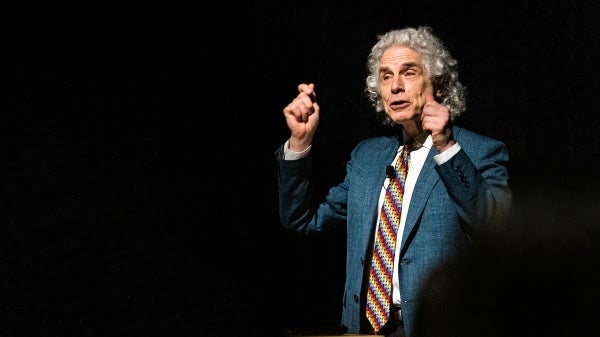New ASU psychology certificate focuses on suicide prevention education

People often fear that talking about suicide can lead to an increase in incidents, but research shows that this is not the case. Photo by Hannah Busing, Unsplash
Suicide, which is responsible for more than 800,000 deaths annually worldwide, is now the second leading cause of death among young adults, ahead of homicide, drugs and alcohol, cancer and heart disease.
Why is suicide growing at such a rate among young adults? What can be done about it?
These questions have baffled scientists and educators alike. What we do know is that interventions can help prevent it, something that is reflected in Arizona’s recent passage of a bill requiring evidence-based training in suicide prevention and intervention for public educators and school personnel starting in the academic year 2020-21.
To help prepare students for careers in such fields, the ASU Department of Psychology launched a certificate in applied prevention science to advance science-based prevention in community settings. The certificate program is designed specifically for educators and organization leaders who want to learn about how to implement evidence-based programs for preventing a wide range of problems and difficulties.
The goal of prevention science is to intervene as early as possible, and evidence-based interventions have been shown to be effective at reducing juvenile delinquency, risky sexual behavior, alcohol abuse, poor academic performance and violent behavior in communities. There is also evidence that the risks associated with suicide are preventable.
“We want trainees in the graduate certificate program to become skilled advocates for prevention solutions that work,” said Armando Pina, associate professor of psychology. “To achieve this goal, we emphasize that to make a difference in organizations and communities, one must understand effective prevention practices, where to find them and how to sustain such solutions. We teach students to make a difference such that youth and families can live happy and productive lives.”
People often fear that talking about suicide can lead to an increase in incidents, but research shows that this is not the case. Awareness does not lead to suicide, and instead can actually help with finding resources to help someone in need.
Suicide is a multifaceted issue and is often the combination of many factors like depression, trauma, anxiety, bullying and social withdrawal. But suicide can occur in the absence of known mental illness.
“What we know is that symptoms and feelings of anxiety are all predictors of future depression and mental health concerns, including suicidality and self-harm,” said Ryan Stoll, an expert in prevention science and founder of the COMPASS for Courage intervention program for anxiety and stress in children. “So when we think about suicide prevention, it is not in isolation — we have to consider these other mental health concerns that we know predate it.”
Stoll’s involvement with suicide prevention started well before he started training as a clinical psychologist. He volunteered with the nonprofit To Write Love on Her Arms, helping to spread the message to struggling teens that they are not alone and they do matter. The organization traveled with the Vans Warped Tour for years and met with teenagers who were struggling with depression or mental health issues and provided resources for them to find help.
“If we are actually going to address this public health crisis, we have to talk about it,” Stoll said. “We need to have a culture of openness if we are going to find a collective solution.”
If you or someone you know is in crisis, call the toll-free National Suicide Prevention Lifeline at 1-800-273-TALK (8255), available 24 hours a day, seven days a week to anyone. All calls are confidential. Additionally, resources are available for ASU students with confidential professional counseling on campus.
More Science and technology
ASU Interplanetary Lab celebrates 5 years of success
Five years ago, an Arizona State University student came up with the idea of creating a special satellite in what was then the…

ASU secures NSF grant to advance data science literacy as demand soars
In an era where data permeates every facet of our lives, the importance of data literacy cannot be overstated. Recognizing this…

Popular science author Steven Pinker explores rationale behind irrational thinking at ASU event
Popular science author Steven Pinker returned to Arizona State University’s Tempe campus on Feb. 7 for a rational talk about…